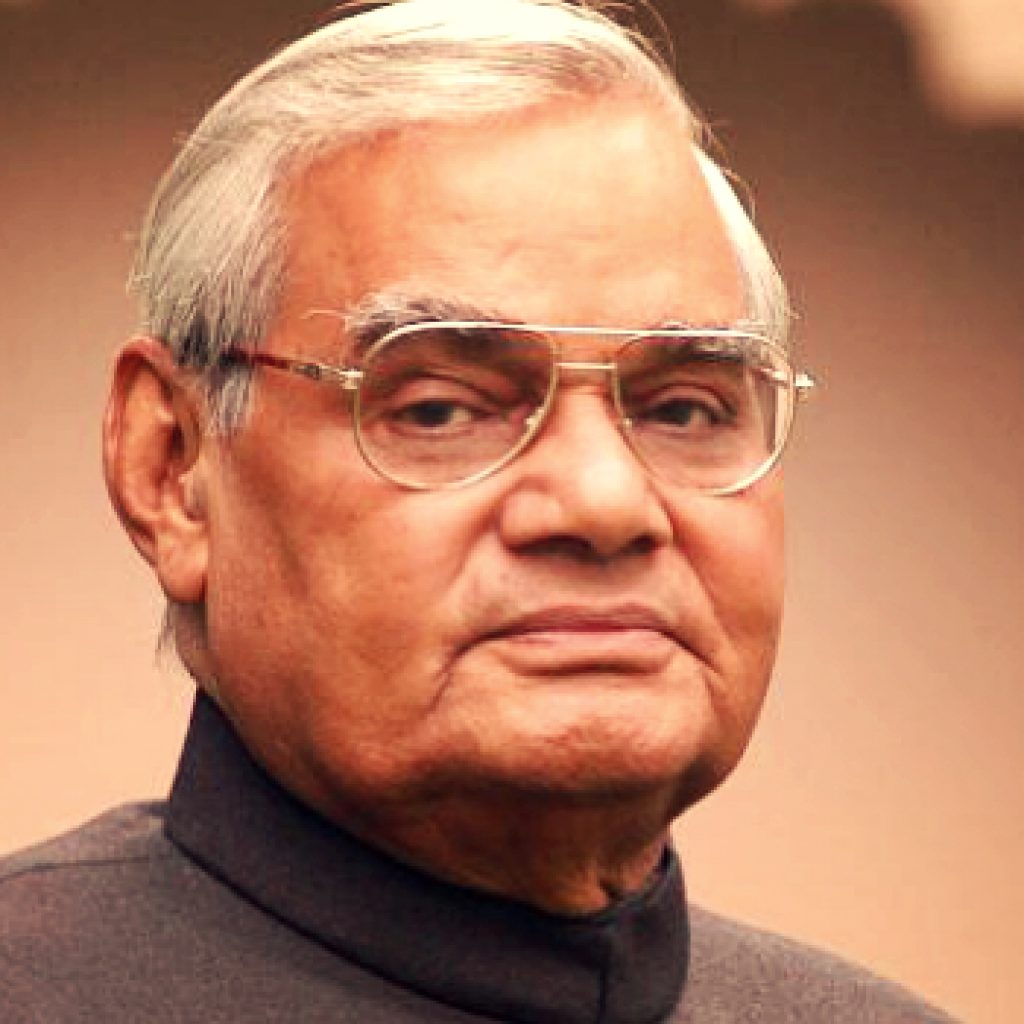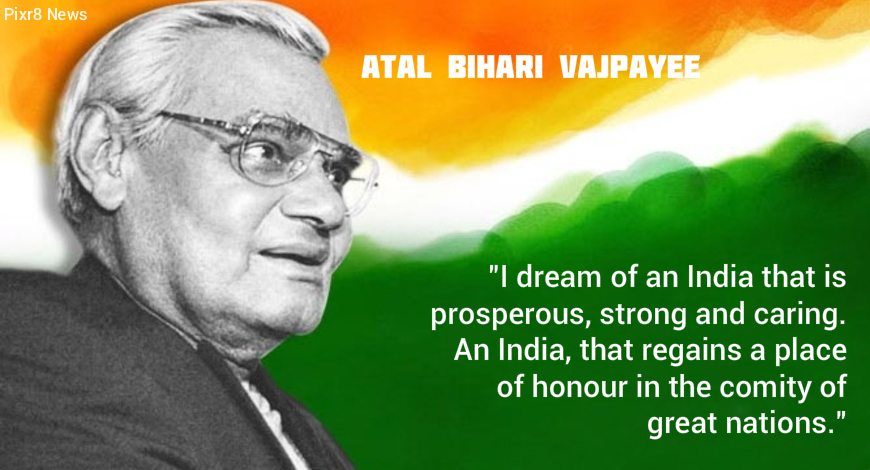
ATAL BIHARI VAJPAYEE – The Immortal Legend who has taken India to great heights and has been a sound politician serving the country thrice as the Prime Minister. The iconic national leader took a greater step in the evolvement of the rural level with a mission to make India a global leader.
He has always taken bold and confident decisions and has led India to become a nuclear state. Also, Atal Bihari Vajpayee Ji is considered as the architect of the telecommunication sector in India. He is also well-known for launching social development schemes, including making education a fundamental right. Between all these things, Vajpayee Ji has always been a soft-spoken person and took all the decisions looking towards the favor and good of the country and its people.
The legend is no more, but no one can ignore his contribution to economic, political and diplomatic backgrounds in India. The former Prime Minister was the man behind many key decisions and reforms and here we have the major economic decisions taken by Atal Ji that changed the face of India and led it towards success.
– Goods and Services Tax
We all know the importance of GST in today’s world. Though its implementation took place in India on July 1, 2017, the idea of a common tax structure for goods and services across the country was initiated by Atal Bihari Vajpayee. The government led by him had built a committee in 2000 to design the backbone of the GST model and make sure that the technology back-end was put into place.
But because of the lack of harmony and agreement among the parties and individual states, the reform could not take place at that time and was delayed for as long as 17 years.
– Privatisation/ Disinvestment
The former Prime Minister was a supporter of eliminating the government’s role in running businesses for the purpose of boosting rapid growth. For this, he launched a separate department for disinvestment in 1999. Under his service, huge disinvestment initiatives including that of Bharat Aluminium Company (BALCO), Hindustan Zinc and also Videsh Sanchar Nigam Limited were taken forward.
This was a great step involving modern technology keeping in mind that the resources with the government were limited. This move created new opportunities for private enterprises and helped them to grow even more.
– Sarva Shiksha Abhiyaan
With an aim to provide free and compulsory elementary education to all children between 6 and 14 years of age, Atal Bihari Vajpayee inaugurated the Sarva Shiksha Abhiyaan in 2000-01. The primary and basic motive of this scheme was to reduce dropouts and increase the net enrolment ratio at primary level.
The motto of the scheme was education to all, new schools were opened and existing ones were renovated. Within four years of the launch, the number of out-of-school children fell by 60 percent and the literacy rate of India also increased from 64.8 percent in 2001 to 74.04 percent in 2011.

– Telecom revolution
Atal Bihari Vajpayee Ji brought a huge revolution in the telecommunication sector by bringing a revenue sharing agreement in place of fixed license fees. The Vajpayee-led government took a decision to end state monopolies for entities like Bharat Sanchar Nigam Limited (BSNL) and brought in a new Telecom Policy wherein a revenue-sharing regime was introduced.
At this time, the country witnessed a fall in the service fee which led to a decrease in call costs and this enabled even middle-class people to afford a mobile phone. According to the reports, nearly 32 million handsets were sold in India.
– Fiscal Responsibility Act
The PM Vajpayee-led government along with all the important reforms also launched the Fiscal Responsibility and Budget Management (FRBM) Act in 2003. The primary objective of the scheme was to reduce fiscal deficits and boost savings in the public sector.
Meanwhile, there were various amendments made to the Act, it was Vajpayee who put forward the idea of keeping fiscal deficit under check at 3 percent of gross domestic product (GDP).
– Science and Research
Atal Bihari Vajpayee-led government also launched the Chandrayan-1 project on India’s 56th Independence Day for the development of science and research sector in the country. This gave a major thrust to Indian space mission.
Vajpayee Ji said, “Our country is now ready to fly high in the field of science. I am pleased to announce that India will send her own spacecraft to the moon by 2008. It is being named Chandrayaan.”
The former Prime Minister of India who passed away yesterday at the age of 93 has contributed a lot to the country and his efforts can today be seen in the ever-emerging economy of India. He will always be remembered by the people of our country with respect and all the honor that he deserves.
